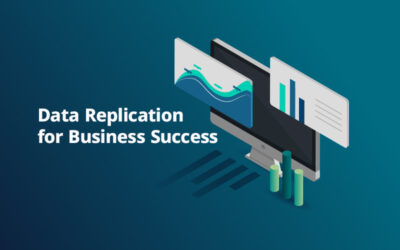Modern businesses have a vast amount of data generated from myriad sources such as multiple applications, devices, and operating systems. This data exists in varied formats: text, numeric, multimedia, models, software languages, and more. To make data driven decisions for business process analysis and digital transformation, organizations need to manage this information. Data conversion services support the process by transforming available data into formats that can be integrated into the organization’s database. This will help the organization to gain actionable insights from the data and use it to generate value through successful automation.
Applications and Benefits of BPA
Organizations can utilize BPA when they face issues such as regular delays in meeting orders, increased customer complaints, examine the viability of automating certain processes, and so on. BPA can help organizations:
- gain visibility into processes
- predict market trends
- reveal communication gaps and resolve approval process barriers
- ensure better management of large volumes of data
- implement new, improved processes
This approach has a crucial role in areas such as
- financial controls and accounts payable
- hiring practices
- market research
- product development
- Logistics and delivery
- Document management
- Inventory tracking
- Procurement and sales
- Contract management
- Audits and compliance
- Online marketing
The benefits of BPA include:
- Provides valuable data and clear documentation on the business process
- Identifies bottlenecks, obstacles and inefficiencies that are impacting/delaying the process
- Improves resource use
- Enhances existing processes and operational efficiency
- Replaces processes that are inefficient or outdated and reduces costs
- Supports development of new training programs for employees to improve the specific process
- Improve compliance
Why Business Process Analysis Should Precede Automation
BPA is a strategy that companies utilize to evaluate if their current processes are working and meeting their goals. IBM defines BPA as “an approach to analyzing business operation processes. It is a detailed, multi-step examination of each part of a process to identify what is working well in your current process, what needs to be improved and how any necessary improvements can best be made”.
Performing BPA before automation is critical to the success of the project. Implementing automation before optimizing a business process can lead to errors and inefficiencies in the process.
Before they automate a process, organizations need to consider if there is an opportunity to change or improve the process. Not all manual processes will benefit from automation. For successful optimization of a process, organizations should automate only repetitive parts of a process do not constantly fluctuate.
Applying BPA will help you decide whether to go ahead with an automation initiative.
Role of Data Conversion Services
BPA leverages data to gain visibility into core process performance and makes recommendations based only on this information to improve those procesess. To apply analytics in business processes and gain actionable, you need accessible data from across the organization. Partnering with a competent data conversion company can make this data available for business process analysis.
- Quality data: To perform BPA, you need quality data about the process. The data has to be accurate, valid, complete, and consistent. Outsourcing data conversion to an expert can ensure data that meets these expectations.
- Unified database: Converting paper-based data into digital format allows it to be stored in a common database. This will make the information accessible from anywhere and also allow it to be easily utilized for BPA.
- Provides data in different types of file formats: There are different types of file formats such as Doc, Text, HTML and HTM, PPT and PDF. When data is viewed in a certain format can help to reveal new insights that may otherwise go unobserved. Converting and restructuring data into a new format can provide a new perspective about the data. This can help businesses get a better understanding of the data and use it to perform BPA to gain new insights from it.
- Allows for efficient analysis: Converting data into the required digital format can help you understand, analyze, and present information effectively. Digitized data provides accessibility and data visibility.
Data conversion companies support business process analysis by ensuring the organizations have the robust data needed to implement automation. A reliable company can provide cost-effective solutions to drive BPA and automation by combining unstructured, siloed and distributed data, building robust data management practices, and organize, prepare and validate data for analysis to improve the decision-making process and turn insights into action.




